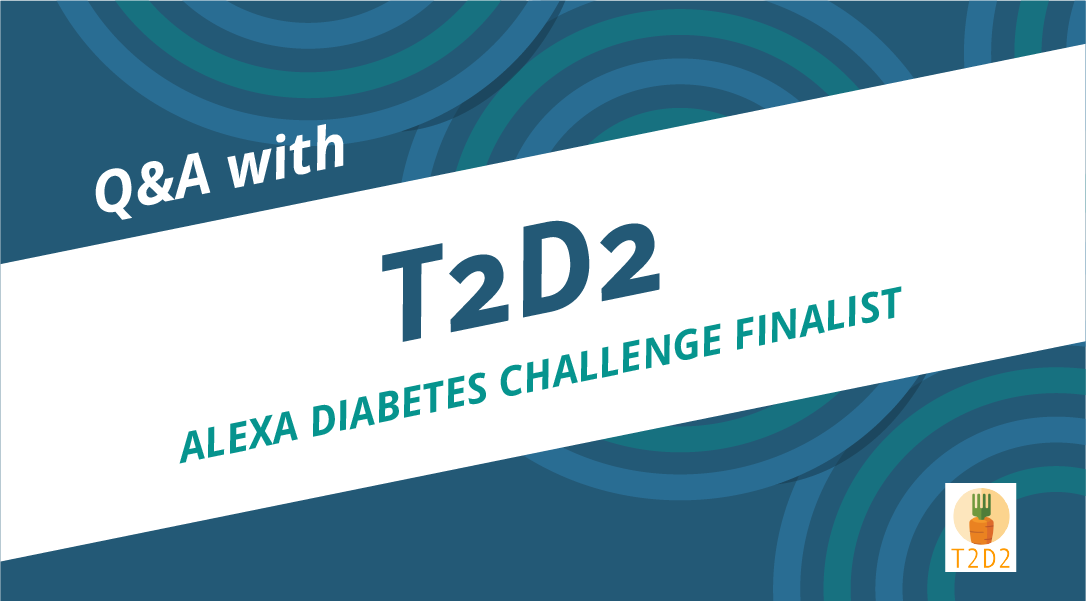
This is the fifth post in our “5 Teams Changing Diabetes Management” series, featuring Q&A with the Alexa Diabetes Challenge Finalists. These concepts demonstrate the vast potential for voice-enabled solutions to improve life for those with type 2 diabetes.
Our fifth post features a Q&A with Elliot Mitchell, Biomedical Informatics PhD Student at Columbia University. Together with Marissa Burgermaster, Elizabeth Heitkemper, Meghan Reading, Matthew Levine, Yishen Miao, and Pooja Desai, he developed T2D2: Taming type 2 diabetes, together, a virtual nutrition assistant that uses machine learning to provide in-the-moment personalized education and recommendations as well as meal planning, and food and glucose logging.
What is the biggest insight you uncovered at Innovators’ Boot Camp?
Boot Camp was a great experience, and we were thrilled and humbled to meet the other finalists, as well as all the experts from AWS, Merck, and elsewhere. We were really taken by the panel of patients with diabetes who graciously agreed to offer their time and insights for the group discussion. I was struck by the tremendous variability in individual stories we heard, even in such a small sample. Diabetes truly can affect all types of people, which has implication for creating a personalize user experience. Some may respond better to a strict coach, while others prefer a soft, supportive touch, or no-nonsense facts. While no single application can be everything to everyone, we’re exploring ways we can tailor the experience of using T2D2 for individuals with different needs, personalities, and backgrounds.
How do you see your solution evolving over the next year?
We are excited to continue building our solution and see our proposed ideas come to fruition. As researchers in an academic institution, we plan to validate T2D2 using a scientific approach. In our view, too many consumer health applications are brought to market and reach patient hands without any evidence that they actually work as intended. We plan to study and iteratively improve T2D2 with user experience and effectiveness studies, to build an end product that is demonstrated to actually improve the lives of those living with diabetes in tangible, measurable ways.
Thinking ahead, how do see your solution expanding beyond the U.S. market, and supporting patients around the world?
While it’s undeniable that voice technology is having a profound impact in the US, of all markets across the world, the US may be one of the least prepared to fully adopt voice interfaces. If you look at other countries, you find increased use of voice features like audio recordings in messaging apps or using voice assistance more openly in public. This is especially true in countries with a non-Latin alphabet, where the keyboard is a particularly terrible entry method. Couple this with less access to care in the developing world, and there’s a tremendous opportunity to help people outside of the US better manage their health with voice technology.
